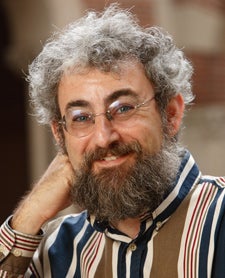Researchers with the USC Wrigley Institute for Environmental Studies, housed in USC Dornsife, have received a $2 million grant from the National Science Foundation (NSF) to study the composition and complexity of marine microbial communities that are ubiquitous in the world’s oceans.
The six marine and computational biologists are interested in how marine microbial communities respond to natural events and human-induced disturbances such as wastewater release — which organisms thrive, which don’t and how the communities adjust and function over time. They will also search for links between microbial communities and harmful algal blooms.
Marine microbial communities are critical components of the Earth system. They draw carbon dioxide out of the atmosphere to make organic compounds and provide half the oxygen we breathe. This process of photosynthesis is the foundation of life in the sea and on land.
What makes this project unique is that the researchers now have the tools to examine entire microbial communities at the genetic level. The researchers will determine how taxonomic and genetic diversity of microbes influence their function in the marine realm.
“Microbes are critical parts of biogeochemical cycles,” said Jed Fuhrman, McCulloch-Crosby Chair in Marine Biology and professor of biological sciences in USC Dornsife, and the lead investigator of the grant. “Some parts of these cycles are only performed by microbes — if you got rid of them, you’d break those cycles.”

Jed Fuhrman, McCulloch-Crosby Chair in Marine Biology and professor of biological sciences, is the lead investigator of the NSF grant. Photo by Phil Channing.
The other researchers include two faculty in residence at the USC Wrigley Marine Science Center on Catalina Island — John Heidelberg, associate professor of biological sciences, and William Nelson, assistant research professor of biological sciences — as well as David Caron, professor of biological sciences and former interim director of the Wrigley Institute; Fengzhu Sun, professor of molecular and computational biology; and Ting Chen, associate professor of biological sciences, computer science and mathematics, all from USC Dornsife.
The four-year project began Oct. 1. It builds on data collected by Fuhrman and Caron at a microbial observatory located midway between the Port of Los Angeles and the Wrigley Marine Science Center. That NSF-funded project has been ongoing for more than 10 years. The new NSF award will support continued sampling between the mainland and Catalina Island and new sampling near the port and in the waters near the Wrigley Marine Science Center.
Microbial communities do much of the heavy lifting in the ocean — meaning they decompose dead organisms and convert chemical compounds into new life forms. Entire microbial communities have never been studied this thoroughly before.
“When you change the microbes, you don’t just change that community, you change the food web,” Caron said. “We’re trying to study all the microbes to see how they’re connected to the larger organisms that rely on them.”
An enormous amount of data is generated by sequencing entire microbial communities. That’s where the molecular and computational biologists come in.
“Bioinformatics is a way of analyzing that massive dataset,” Fuhrman said. “It’s a field that tries to handle this large amount of sequence data and process them into an intelligible form that we can then analyze.”